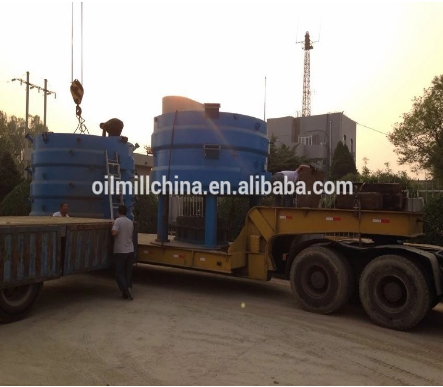Aug . 16, 2024 13:32 Back to list
Refined Seed Oil Production and Its Industrial Applications Explained
The Importance of Seed Oil Refining Units in Modern Agriculture
In today's agricultural landscape, seed oils have emerged as a vital component in food production and the broader economy. The refining process utilized to transform crude seed oils into refined products is essential to ensure safety, improve shelf life, and enhance the nutritional profile of these oils. Seed oil refining units play a crucial role in this process, providing a vital link between raw agricultural production and consumer markets.
The refining of seed oils involves several key steps, including degumming, neutralization, bleaching, and deodorization. Each of these steps serves a specific purpose aimed at removing impurities and improving the quality of the final product. Degumming removes phospholipids and other impurities that could affect oil stability. Neutralization involves removing free fatty acids that can lead to undesirable flavors and reduce the oil’s shelf life. The bleaching process uses adsorbent clays to remove color pigments and trace elements while deodorization eliminates any of the remaining undesirable odors, resulting in a neutral and pleasant oil product.
The Importance of Seed Oil Refining Units in Modern Agriculture
Moreover, seed oil refining units also contribute significantly to food safety. Properly refined oils are less likely to harbor harmful bacteria or toxins, which can pose a risk to human health. The process of refining not only purifies the oil but also ensures that it complies with regulatory standards for food safety, thereby protecting consumers and enhancing public confidence in food products.
seed oil refined unit product

The environmental impact of seed oil refining is another crucial consideration. Advances in refining technologies have led to more sustainable practices. Many modern refining units have invested in energy-efficient methods and waste minimization strategies, leading to reduced carbon footprints. Emerging trends, such as the use of by-products from the refining process, contribute to a circular economy where waste is minimized, and additional revenue streams are created.
Automation and technological advancements have further transformed seed oil refining. With the rise of Industry 4.0 concepts, many refining units are now adopting smart technologies such as IoT sensors, machine learning algorithms, and real-time data analytics. These innovations facilitate more precise control of the refining process, improving efficiency, reducing waste, and ensuring consistent product quality.
Despite the advancements, challenges remain in the seed oil refining sector. Price volatility of raw seed materials can impact operational costs, and evolving health-conscious consumer trends demand constant innovation. Additionally, pressure to maintain sustainable practices means that refining units must adapt continuously to new regulations and societal expectations.
In conclusion, seed oil refining units are pivotal in ensuring the quality, safety, and sustainability of edible oils in the modern food supply chain. As the demand for refined seed oils continues to grow, it is essential that these units adapt to changing consumer preferences, incorporate sustainable practices, and leverage technological advancements. By doing so, they not only contribute to healthier diets but also support a more resilient and sustainable agricultural ecosystem. The future of seed oil refining looks promising, holding the potential for innovations that will benefit both consumers and the planet.
-
HP 120 Model Cold Oil Press-Hebei Huipin Machinery|Energy Efficiency, Multi-Functionality
NewsAug.18,2025
-
HP 120 Model Cold Oil Press-Hebei Huipin Machinery|Oil Extraction, Multi-Functional
NewsAug.18,2025
-
HP 120 Cold Oil Press - Hebei Huipin | Automation & Efficiency
NewsAug.18,2025
-
Safflower Oil Press Service: Efficient & Quality Extraction
NewsAug.18,2025
-
HP 120 Cold Oil Press-Hebei Huipin Machinery|Oil Extraction, High Efficiency
NewsAug.17,2025
-
HP 120 Cold Oil Press - Hebei Huipin Machinery | High-Efficiency Oil Extraction
NewsAug.17,2025
